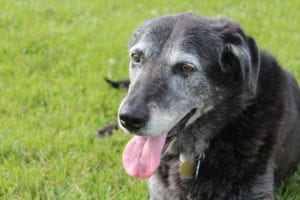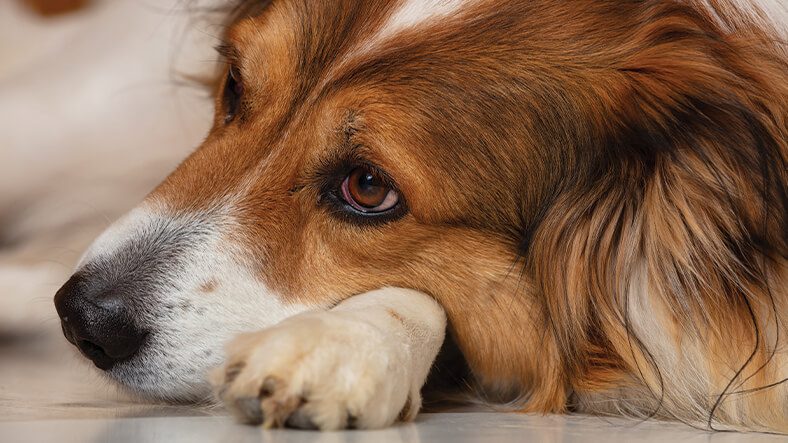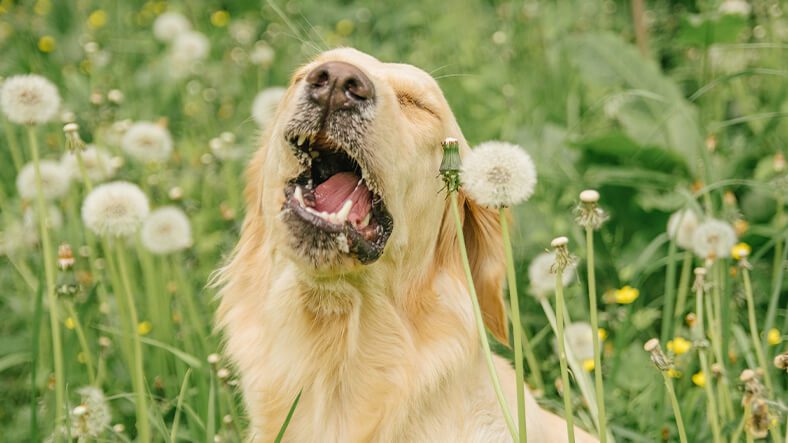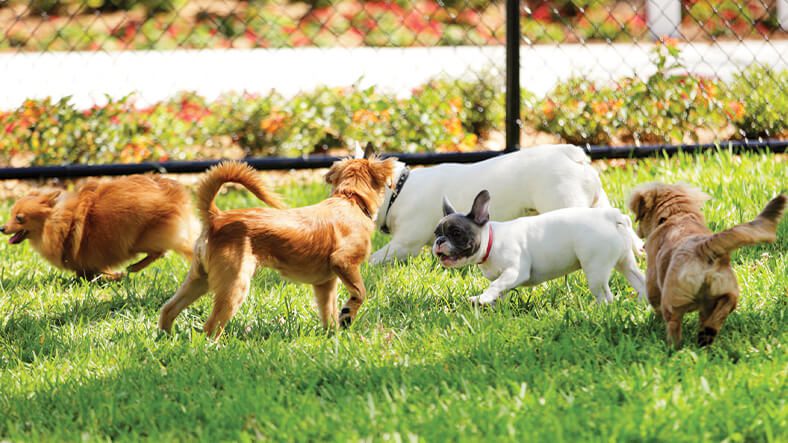6 Causes of Dog Panting in Plymouth Meeting, PA
Have you noticed your dog panting more than normal? Does he seem to be distressed or show other signs of having an issue related to this panting? Are you concerned about what might be causing him to pant like this?

If you’re worried about your dog’s panting, it’s important to think about what the underlying cause might be. Read through the information below to find out more about some of the most common causes of panting in dogs in Plymouth Meeting, ranging from the simple to the more serious.
Exertion
One of the most common and ordinary causes of panting in dogs is exertion. Dogs who are exerting themselves physically will start panting and may also start drooling from the activity. This is normal and should ease up after your dog has had a few minutes to calm down and cool off.
If this panting and drooling does not stop after a short rest time, your dog may have something else going on. Watch him closely and give him more time to rest. He may need to see a veterinarian in Plymouth Meeting, PA for an underlying health concern.
Heat
When it’s very hot outside, your dog may start panting. This is normal, as long as it isn’t excessive. Normal dog panting is light to moderate and doesn’t cause the dog’s sides to move in and out too much (although a little bit is okay in hot weather). It should ease up when your dog is given cool water, shade, or air conditioning.
If your dog’s panting is extreme or if he is also drooling excessively along with the panting, this may mean he has heatstroke. Take your dog to the emergency vet in Plymouth Meeting right away if you suspect heatstroke.
Pain
If your dog is in pain, he may start panting as a physical response to that pain. Your dog will likely show other signs of being in pain if this is the case, including a hunched posture, hiding, fearfulness, or aggression. Look for signs to indicate that there may be something not quite right with your dog.
If you think your dog may be panting because he is in pain, you should take him to the vet as soon as possible. This may or may not be an emergency situation, but either way, he does need to have a professional medical examination to find out what’s causing the problem.
Nausea
Dogs who are nauseated may start to pant or breathe heavily due to the feeling of nausea. If your dog is panting and also licking his mouth frequently, this is a good indication that he feels nauseated. If he vomits once and seems fine afterward, there should be nothing to worry about; this is normal.
However, if your dog continues to vomit or show signs of nausea with no relief, he may be sick or have something else wrong. Take him to the vet if this condition does not ease up within a few hours.
Inhalation of Foreign Object
If your dog inhales a foreign object—such as a piece of a toy, a piece of food, or debris—he may begin panting because he can’t breathe properly. Check your dog’s gums to see if he is getting enough oxygen. If he isn’t, his gums will turn blue, black, or blood red, depending on his normal gum color.
If your dog’s gums change color, he isn’t getting enough oxygen and needs to go to the emergency vet right away. Do not wait to take your dog in. He may need immediate medical care and may need the object surgically removed from his airways.
Heart Disease
Sadly, heart disease is also a known cause of excess panting in dogs in Plymouth Meeting. As heart disease progresses, it causes dogs to no longer be able to take a deep breath. It can make dogs feel more winded with just a little bit of exertion due to the overworking of the heart muscle.
Dogs may develop heart disease due to old age, but heartworm infections can also cause panting in excess. You will need to speak with your vet for more information if you suspect your dog’s heart could be causing the panting problem.
Find the Underlying Cause of Your Dog’s Panting in Plymouth Meeting, PA
As you can see, there are many different potential health problems that can cause your dog to pant. However, there are also some environmental factors that may contribute to excess panting, which should easily clear up as soon as the issue is resolved.
If you have any further questions or concerns about the cause of your dog’s panting, you should always talk to your vet. Working with a trusted vet can give you some peace of mind and help you find out the professional medical diagnosis of your dog’s health problems as well. Your vet can help you formulate a treatment or management plan from there. Don’t wait, call our team at The Village Vets in Plymouth Meeting today at (484) 820-1700 to schedule your dog’s appointment as soon as possible.
Recent Posts
About The Village Vets
The Village Vets of Plymouth Meeting offers excellent service to clients in a comfortable, friendly atmosphere. To learn more about us and how we can better serve you and your pet here in Plymouth Meeting, PA, click the button below.
Share This Post
Recent Posts
About The Village Vets
The Village Vets is a network of three animal hospitals based in Atlanta, GA and the surrounding area. We offer honest, excellent service to our clients in a comfortable, friendly atmosphere. To learn more about our locations and how we can better serve you and your pet, click the button below.




